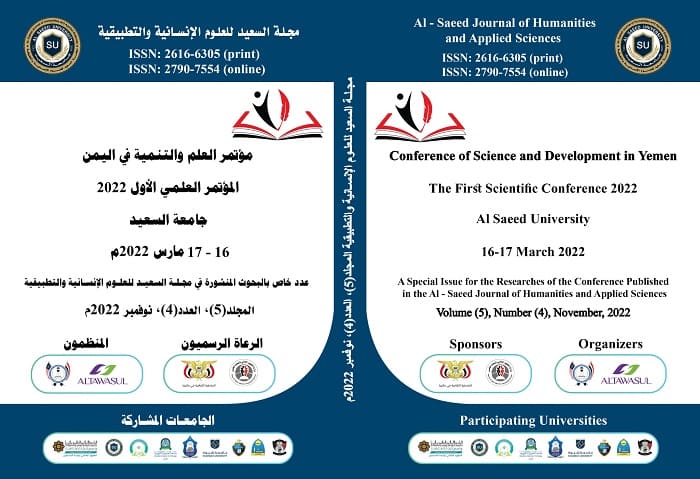الفقيه باغيثان ونظرية تنمية المجتمع - الزكاة أنموذجًا
DOI:
https://doi.org/10.59325/sjhas.v5i4.115الكلمات المفتاحية:
باغيثان، التنمية، أموال، الزكاة، الشريعة، العلم، الفقه، نظرية، مجتمع، استثمار.الملخص
تناول البحث موضوع الزكاة والموارد المالية في الإسلام وطُرق الاستثمار؛ وعلاقتها بالأفراد والمجتمعات، وحقوق العامة والخاصة، وهي موضوعات الساعة؛ لأنها ملتقى شُعبتين من الشريعة الإسلامية وهما العبادة والسلوك الاجتماعي، وعلاقتها بالتنمية.
واستخدم الباحث المنهج الوصفي التحليلي، وهدف البحث إلى إبراز أثر الزكاة في تنمية المجتمع، وإعطاء مساحات للعلماء والفقهاء مستخرجين كنوز فقه الزكاة في معالجة مشاكل المجتمع، إذن فهو يحقق معالجات لمشكلات مجتمعية، تمثل تنمية فعالة لحاجة الإنسان، وتستشرف تطلعاته المستقبلية بما يحقق التنمية المستدامة.
وخلص البحث إلى نتائج منها: أنه يمكن للزكاة أن تؤثر مباشرة على التنمية بالاستفادة من أموال الزكاة، للقيام بمشاريع تنموية، وفق الضوابط والشروط التي ذكرها الفقهاء، ويعود ريع تلك المشاريع للفقراء، والمساكين المستحقين للزكاة. ظهرت استشرافات الفقيه الفذّ باغيثان في النظر الى حكمة التشريع من تحقيق المقاصد والمصالح، ومن ذلك فتاويه في الزكاة. وقد أوصى الباحث بإخراج درر فتاوى الزكاة المتعلقة بالتنمية، وإبراز مكانة العلم والعلماء ومنهم العلاّمة باغيثان، وإيجاد مؤسسات تعنى بالتراث الفقهي الإسلامي وبعثه بما يحقق تنمية مجتمعية، تدعم من قبل الجهات الرسمية وغيرها.
التنزيلات
منشور
كيفية الاقتباس
إصدار
القسم
الرخصة
يحتفظ الباحثون بحقوق النشر. ويتم ترخيص البحوث بموجب ترخيص Creative Commons CC BY 4.0 المفتوح، مما يعني أنه يجوز لأي شخص تنزيل البحث وقراءته مجانًا. وإعادة استخدام البحث واقتباسه شريطة أن يتم الإشارة إلى المصدر الأصلي. تتيح هذه الشروط الاستخدام الأقصى لعمل الباحث وعرضه.



